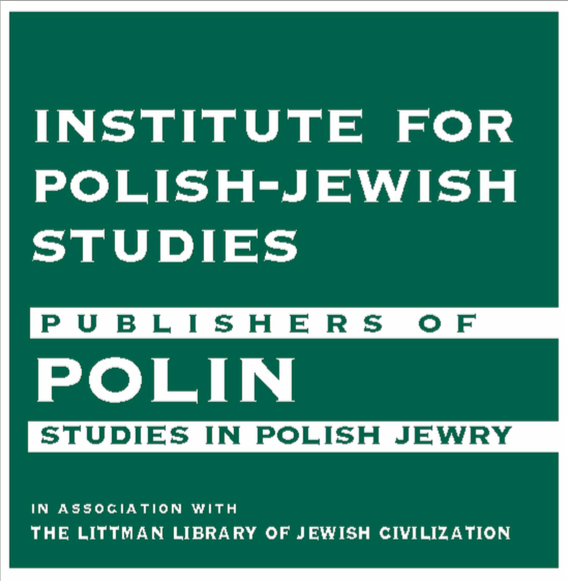Conference to launch volume 28 of Polin: Studies in Polish Jewry
Antony Polonsky
On Thursday 19 January a one day conference on the subject ‘Writing Jewish History in Eastern Europe’ was organized at the Polish Embassy in London by the Institute for Polish-Jewish Studies, the American Association for Polish-Jewish Studies, the Institute of Jewish Studies, University College London and the Polish Cultural Institute, London. It received financial support from the Salo W. and Jeannette M. Baron Foundation, New York City. The goal of the conference was to launch volume 28 of the yearbook Polin: Studies in Polish Jewry, which has as its theme ‘Writing Jewish History in Eastern Europe’ and was edited by Natalia Aleksiun, Brian Horowitz and Antony Polonsky.
Historiography formed an unusually important component of the popular culture and heritage of east European Jewry in the late nineteenth and early twentieth centuries. This was a period of social, economic, and political upheaval, and for the emerging class of educated Jews the writing and reading of Jewish history provided not only intellectual but also emotional and moral sustenance. Facing an insecure future became easier with an understanding of the past, and of the Jewish place in that past. This volume of Polin is devoted to the development of Jewish historiography in the three east European centres—Congress Poland, the Russian empire, and Galicia—that together contained the majority of world Jewry at that time. Drawing widely on the multilingual body of scholarly and popular literature that emerged in that turbulent environment, the contributors to this volume attempt to go beyond the established paradigms in the study of Jewish historiography, and specifically to examine the relationship between the writing of Jewish history and of non-Jewish history in eastern Europe. In doing so they expose the tension between the study of the Jewish past in a communal setting and in a wider, regional, setting that located Jews firmly in the non-Jewish political, economic, and cultural environment. They also explore the relationship between ‘history’—seen as the popular understanding of the past—and ‘scholarly history’—interpretation of the past through the academic study of the sources, which lays claim to objectivity and authority.
The development of Jewish historical scholarship grew out of the new intellectual climate of the Haskalah and the influence of new approaches to history writing, most importantly the historical-critical method emerging in the 19th century, which both encouraged novel modes of thinking about self and others and promoted critical enquiry and new approaches to traditional sources. At the same time, however, in response to what the traditionalists perceived as secular research, an Orthodox historiography also emerged, driven not only by scholarly curiosity but also by the need to provide a powerful counterweight in the struggle against modernity. In fact, east European Jewish historiography has undergone many methodological, thematic, and ideological transformations over the last two centuries. Even today, east European Jewish historiography revisits many of the questions of importance to scholars and audiences since its emergence: how Jews lived, both within the narrow Jewish world and in contact with the wider society; the limits of Jewish insularity and integration; expressions of persecution and anti-Jewish violence; and also Jewish contributions to the societies and states of eastern Europe. Many challenges still remain: questions of the purpose of the research, its ideological colouring, and its relevance for contemporary Jewish communities. The volume draws on research in many disciplines and from different methodological points of view and seeks offer scholars of modern Jewry trying to understand how east European Jews saw themselves as they struggled with the concepts of modernity and national identity and how their history continues to be studied and discussed by international community of scholars.
The conference was opened by His Excellency, Arkady Rzegocki, Ambassador of the Republic of Poland, Vivian Wineman, President of the Institute for Polish-Jewish Studies and Ben Helfgott, Chairman of the Institute for Polish-Jewish Studies. It consisted of three sessions. The first sought to elucidate the goals of the volume. Natalia Aleksiun of Touro College, New York, one of the editors gave a paper with the title, ‘Then and Now: Mapping Polish Jewish Historiography’ and a second editor, Brian Horowitz of Tulane University, New Orleans gave and account of ‘Eastern European History on Three Continents’. The second session was devoted to the European dimension of Polish-Jewish history, with papers by Eliyana Adler of Pennsylvania State University, ‘Out of the Ghetto? Historiography on Jewish Women in Eastern Europe’, by Jürgen Heyde of the University of Leipzig, ‘Po-lin and the ghetto. European narratives in historical writings on Polish Jewry in the long nineteenth century’ and by François Guesnet of University College London on ‘Heinrich Graetz Finally at Rest in Wroclaw: Eastern Central Europe as a Space of Jewish Historical Entanglement’.
The final session was devoted to ‘The Present State of Polish-Jewish Historiography’. It was chaired by Jan Kubik of the London School of Slavonic and East European Studies and those on the panel were Edyta Gawron (Jagiellonian University, Kraków) and Antony Polonsky (Brandeis University) and Natalia Aleksiun. Norman Davies (University of Oxford) was scheduled to participate but could not do so because of illness. The conference concluded with a presentation by Natalia Romik (UCL Bartlett School of Architecture) on the Nomadic Shtetl Archive, a remarkable and innovative programme for increasing the knowledge and understanding of their Jewish past in small Polish towns.
The conference was attended by over one hundred participants and was marked by a collegial and open atmosphere. Sadly, Ludo Craddock, the longstanding Chief Executive Officer of the Littman Library of Jewish Civilization is about to retire and a number of tributes were paid to his sterling efforts over many years to promote Polin. The Littman Library of Jewish Civilization has now entered into an arrangement with Liverpool University Press, which will make possible the more effective distribution of its books and, in particular, of Polin.
